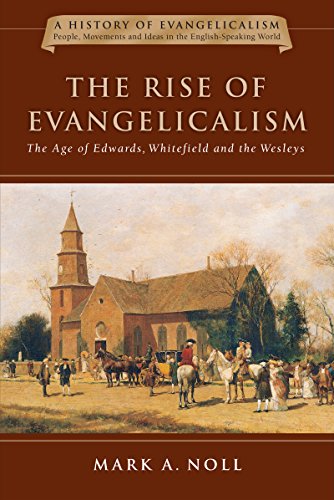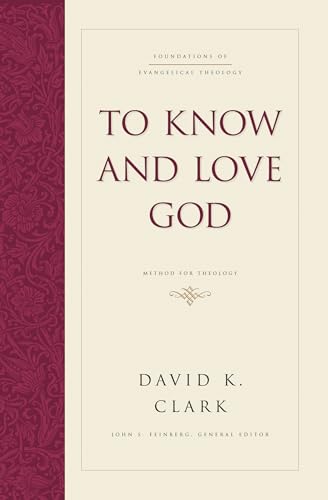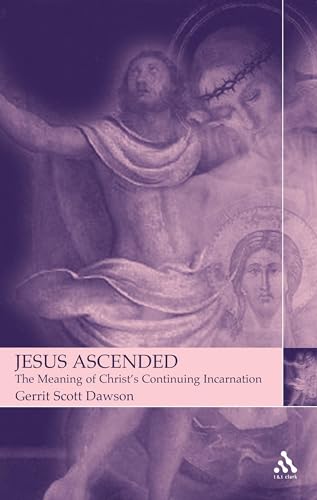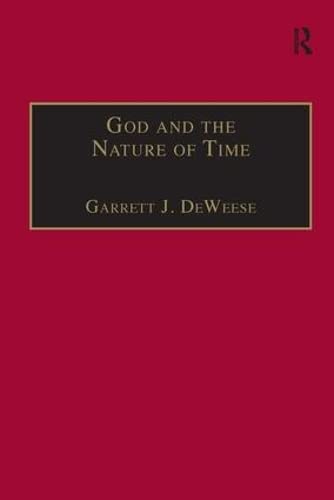Volume 31 - Issue 1
The Unspeakable Arrogance of Doubt
By Carl TruemanIf it is not self-referentially incoherent to make the claim, then one thing in the West today is certain: that doubt is regarded nearly everywhere as a virtue, a sign of modesty, sensitivity and intelligence. To be certain about almost anything else is a sign of arrogance, of bull-headed ignorance, and bigotry. Such is not simply the stuff of a secularised pluralism. Here is an evangelical example of refusal to express certainty on a pretty straightforward issue. Time magazine recently listed the most important evangelicals in America; among those highlighted was an individual who is, apparently, a significant player in something called ‘the Emerging Church’. This is a group which has made the astounding discoveries that—wait for it, you may want to sit down before reading this—generally speaking, people, especially younger people, do not like going to church, do not like authority structures, and do not wish to commit to any kind of traditional doctrinal position, ecclesiastical structure, or established form of worship and piety. Well I never! People don’t want to go to church?! And young people object to authority?! Say it ain’t so, brother, say it ain’t so! Since reading the article I’ve hardly been able to sleep at night, wondering what life-changing insight this group will treat us to next. That the Pope is Catholic? That Chairman Mao really is dead? That buying a used car from a man called ‘Honest John’ is on the whole not a good idea? And that Elvis isn’t working in the Macclesfield Co-op after all? (How I’ve clung to the ‘Macclesfield Hope’ all these years! Was it all for nothing, I ask myself?) Well, we do live in a day when evangelical prophets—and profits—are made by pointing out things that are as plain as a pikestaff to most of us. To quote the late, great Frankie Howerd once again, ‘oooh, missus, titter ye not’!
Now, this post-pikestaff evangelicalism of groups such as the Emerging Church movement may well possess all the features of preening self-regard and portentous pretension to be expected from the various ‘post-whatever’ movements of the last fifteen years; but in the context of the brief Time interview, this was not what concerned me. It was that, when asked his view of homosexuality, this person responded that it was a hard question to answer because he could not do so without hurting somebody on one side of the debate or the other. We need to remember that this was a press interview, and this soundbite may not reflect, his views in all their nuance (though I did not notice any published clarification in later issues); but he did seem to be saying that expressing certainty on this issue would break the higher moral code of not ‘hurting’ anyone. Clear teaching of Scripture notwithstanding, this leader wanted to avoid offending. He is a leader who leads by giving no clear leadership. Doubt is in, being nice and kind; certainty is out, being harsh and unloving. Behold the creed of the modern West.
Sadly, doubt is not the monopoly of the trendy pundits of post-pikestaff evangelicalism. I come across it all the time, even within allegedly traditional evangelical quarters. Indeed, I am continually confronted with those who seem to think that it is a sign of intellectual arrogance or emotional immaturity to have definite opinions on any theological issue however basic, however obviously taught in Scripture, however firmly held by Christians for centuries. For these characters, to be in doubt, however, is to have come of age, to be mature, to be modest, to realise that all questions are irreducibly complicated and must be kept permanently open to debate.
That is why I wish to register my dissent at this point: I believe that doubt is a sign of unspeakable arrogance and, in those who should know better, it is also a sign of intellectual and moral immaturity and abdication Why do I say so? Simply this: Scripture teaches, repeatedly and emphatically, that God has revealed himself to us clearly and straightforwardly, in general revelation in creation and providence; and in special revelation in Christ, and in Scripture, the latter of which now operates as a lens for understanding the whole of reality. Now, a dozen hermeneutical whizz-kids are no doubt reaching for the phone at this point to ring the UCCF head office to complain that such a simpleton has been allowed to continue as editor of Themelios for so long. Are the head honchos at Leicester so naive as to allow someone, who thinks that interpreting Scripture is not that difficult to continue to push such insane nonsense in the pages of their main theological journal? Has this numpty never heard of Gadamer, of Derrida, of Foucault?
Well, yes I have; and, unlike many who drop their names in conversation, I’ve even read quite a lot of their stuff as well. But my point still stands: God has revealed himself clearly, claims of non-Christian philosophers and literary theorists notwithstanding, and he has promised has holy Spirit to believers, particularly when gathered as a church, to assist them in understanding that revelation through the pages of Scripture. This is, of course, a highly controversial statement; but let me say that there is something extremely anti-evangelical, nay, ante-Protestant (in the best, non-sectarian sense of the word) about the whole current obsession with hermeneutics. Evangelicalism, after all, has historical roots in the Reformation of the sixteenth century, and the Reformers were convinced that, as long as the Scriptures were accurately translated into the vernacular, their basic message was clear for all to see. They did not believe not every verse was as transparent as every other verse; they were aware that there were hard passages and easy passages; but they had the supreme confidence that, given decent translations of Scripture and lives of regular, prayerful, churchly obedience, every Tom, Dick and Harriet could understand the basic message of the gospel contained therein.
In the Reformation, of course, it was the Roman Catholic Church that took Scripture from the people, claiming its meaning was obscure, and that it was therefore necessary for an elite priesthood to extract its meaning and mediate it to the people. The Reformers stood against this, arguing for the essential perspicuity, or clarity, of Scripture’s teaching. Today, the priesthood has been replaced by a fragmented scholarly guild, with only a tenuous connection to the church; and every generation of scholars creates its new Gnostic knowledge which one must possess to unlock the arcane meaning of the Bible. In the nineteenth century, it was Higher Criticism that was created. Now it is a thorough acquaintance with continental philosophy or the Dead Sea Scrolls. Pity poor grandma—unless she has Gadamer in one hand and all the key texts of Second Temple Judaism in the other, she can never hope to understand even the most basic of Bible verses. She’d really be better off watching Coronation Street.
Anti-evangelical? Anti-protestant? Friends, this culture of hermeneutical doubt and uncertainty is nothing less that anti-Christian. Don’t get me wrong: we need scholars, we need translators; we need theologians. There is however, a difference between needing something in order to ensure one overall smooth-running of a particular thing, and being so dependent, upon it that one cannot meaningfully operate without it. My car runs pretty well ninety—well, perhaps eighty—percent of the time; when it breaks down, I need an expert to fix it for me. I do not, however, need my mechanic to start it for me in the morning; nor do I have to call him for advice every time I approach a traffic light. In other words, I am quite capable of routinely operating the car myself; I simply need the mechanic to give the car a service every six months to make sure everything is satisfactory, and, at times of crisis, to repair whatever is wrong. Compare this to the church. Now, the Bible is, basically, a simple book, teaching a relatively straightforward story of creation, fall, redemption and consummation. There are complex details; and there have been points in history where the church has broken down, where the gospel has been obscured. That’s why we train our ministers and leaders to be competent in biblical languages and theology—so that they can offer gentle and wise leadership for the routine smooth-running of the church; and we have a few experts here and there to offer advice as and when problems and crises occur. However, what we are witnessing today is nothing less that a hermeneutical and technical overload, which has almost entirely appropriated the Bible for a Gnostic guild of scholars and academics. At the base this Gnosticism is predicated on the belief that the Bible is not essentially simple but highly complicated on every issue on every page. We therefore need to hand it over to the experts who can then tell us what it means, or, more frequently, tell us that it can mean nothing definite in particular. After all, for all of the opaque verbiage of the hermeneutical hoo-hah of the last, twenty years, there is little evidence of any widespread improvement in preaching, or of a greater general confidence in the raw power of God’s Word.
What drives this? Dare I say, the problem is not an intellectual one. It is, at base, a moral one. To abdicate certainty about God and his revelation in the face of this hermeneutical overload, to concede that all of Scripture is incomprehensible to any but the experts, is to doubt that God has communicated to us in a clear and decisive way. It happened in the Garden of Eden when the very first expert in hermeneutics asked the lethal question. ‘Did God really say …?’ and doubt was immediately sown in the minds of Adam and Eve. Their doubt was, of course, not a piece of appropriate interpretative modesty relative to God’s word. If was part and parcel of a moral rejection of God’s authority, a bare-faced act of rebellion.
Have you ever thought that maybe, just maybe, doubt is not the result of the hermeneutical overload after all. Perhaps the hermeneutical overload is itself the result of doubt, of narcissism, and of a moral crisis with regard to submission to God’s word? We need to face up to it: we all want to get out from under the authority of God as expressed in his word. What better way of doing this is there than doubt? And what better way of doubting is there than to produce an elaborate ideology which makes such doubt not simply coherent, but which also clothes it with the virtue of modesty, reasonableness and cosmopolitan savvy? In such a scheme, doubt does not appear as the emotionally immature rebellion of a spoilt child. No, it is a sign of intellectual maturity. Such a view is, of course, absolute nonsense. That God’s most basic statements are of doubtful meaning is not something which we find in the mouth of Jesus Christ in the Gospels; rather, it is the original lie, the thing which started the whole sorry mess in the first place.
‘Oh, Trueman, you’re such an arrogant and ignorant fool!’ I hear you cry. Maybe I am—but am I wrong in this instance? Read Paul; read the prophets; read the accounts of Abraham, of Moses, of Elijah, of John the Baptist. See how such utter conviction about who God is drives so much of what they say and do. Now ask yourself what their lives would have looked like it they had subscribed to the moral and epistemological chaos of the modern evangelical church, whether that church is Emerging, Diverging, or Submerging. Yes, I’ll allow it—the psalms do contain expressions of doubt; but is it not significant that they are all undergirded by the conviction that God is in control and is truly great, and that, whatever questions the psalmist’s experience might raise concerning God, these are aced by what he knows for sure that God must be like because of how he has revealed himself? The average modern ‘prophet’ of post-pikestaff evangelicalism apparently can’t even give a straight answer on the issue of homosexuality, and that’s about as far from the prophetic spirit of Hosea or Jeremiah as it is possible to get.
Reflect for a moment on the arrogance, the sheer, unadulterated, condescending arrogance, of this position: God, whose existence is more sure than that of anything else in the universe, apparently has not revealed himself in a way whereby by Bible can be taken as making even the most basic, non-negotiable claims about reality; and all of his prophets and saints in Scripture have operated under a misapprehension—that they actually knew God and what his will for the world was. By contrast, the arrogant modesty of post-pikestaff doubt would seem to do nothing but cripple evangelism and discipleship by providing the perfect excuse for not facing the demands of God’s law or God’s gospel.
Friends, the gospel of Jesus Christ is far different to the gospel of doubt. Don’t buy into this chaos, but rejoice rather in the certainty of who God is: the one who sent his Son to die for all those who would believe in him, and who rose from the dead on the third day, and whose resurrection guarantees both the forgiveness of our sins and out own ultimate resurrection to glorious eternal life at the end of time. And thank God there is not room—absolutely no room—for doubt on that one.
And as for me, maybe I should try this Emerging Church stuff. Does God exist? Well, that’s a tough one to answer if I want to avoid hurting either the theists or the atheists …
Carl Trueman
Carl Trueman is Professor of Biblical and Religious Studies at Grove City College in Grove City, Pennsylvania.






